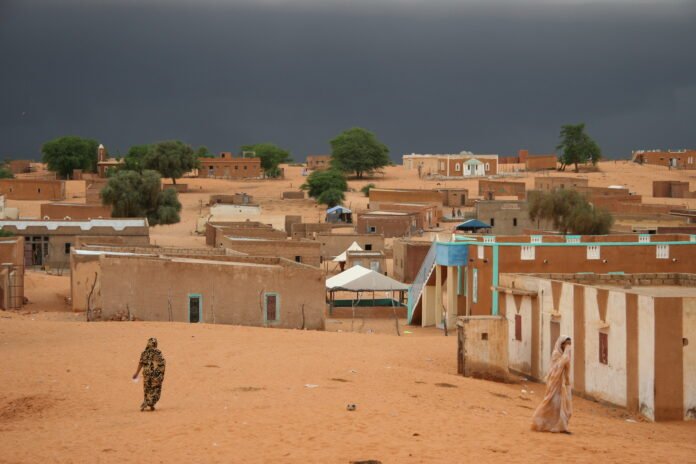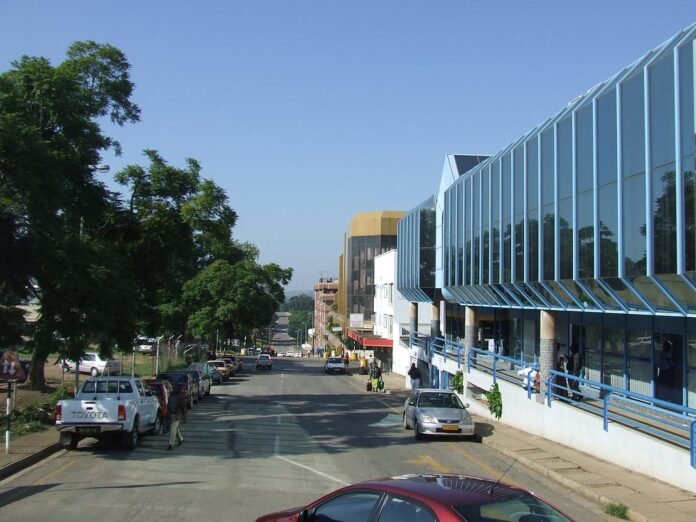Lesotho’s healthcare insurance landscape features a developing public health insurance scheme alongside a growing private insurance sector. Both sectors aim to provide health coverage, but they differ significantly in coverage scope, accessibility, costs, and services offered. Here’s an overview comparing and contrasting the two:
Public Health Insurance in Lesotho
The cornerstone of public health insurance in Lesotho is the National Health Insurance (NHI) Scheme, a government initiative aimed at providing basic healthcare coverage to all citizens. The scheme’s goal is to reduce financial barriers by offering subsidized healthcare services at public facilities. However, the NHI is still under development, and its coverage and service quality remain limited. Public hospitals like Queen Mamohato Hospital offer basic to some advanced care, including emergency services, but many specialized treatments require patients to pay out-of-pocket or seek care abroad, mainly in South Africa.
Public insurance tends to be open to all citizens, aiming for universal health coverage, though implementation gaps and limited infrastructure affect access. The core financial model relies heavily on government funding and subsidies, resulting in lower direct costs for patients but sometimes leading to limited resources and longer wait times. Consumer satisfaction is mixed, with many appreciating the affordability but concerned about service availability and quality.
Private Health Insurance in Lesotho
In contrast, Lesotho’s private health insurance market is vibrant, led by providers such as Basotho Health Limited (BHL), Alliance Insurance, Old Mutual Lesotho, and Sanlam Lesotho Medical Aid. These insurers offer more comprehensive coverage, including inpatient and outpatient care, maternity, dental, wellness programs, and chronic disease management. Private plans often include access to better-equipped facilities, private hospitals like Maseru Private Hospital and Willes Private Hospital, and even international medical evacuation services.
Private insurance is usually premium-based and selective, targeting individuals, families, and corporations who can afford higher costs in exchange for broader and faster healthcare access. Many plans are also tailored to expatriates and multinational companies operating in Lesotho. Financially, private insurance emphasizes risk pooling and premium payments, with relatively high consumer satisfaction due to more personalized and prompt healthcare services.
Key Differences
- Coverage Scope: Public insurance focuses on basic healthcare services and emergency stabilization, whereas private insurance covers a wide range of medical needs, including preventive care, specialized treatments, and international medical evacuation.
- Cost to Users: Public insurance is largely subsidized, resulting in lower costs but potential out-of-pocket expenses for services not covered or unavailable locally. Private insurance requires premium payments, which are higher but grant access to superior and comprehensive care.
- Access to Facilities: Public insurance beneficiaries primarily use government-run hospitals with limited advanced care, while private insurance holders access private hospitals, clinics, and an extensive provider network domestically and abroad.
- Target Users: Public schemes aim to cover the entire population, including vulnerable groups, but coverage remains incomplete. Private insurers primarily serve those who can afford premiums, including corporates and expatriates.
- Emergency Services: Public hospitals provide basic emergency care, but advanced emergency evacuations are rare or unavailable. Private insurance plans often include 24/7 emergency medical evacuation, a vital feature given Lesotho’s limited local advanced care.
Similarities
- Both systems aim to reduce financial barriers to healthcare and improve access.
- Public and private providers contribute to Lesotho’s overall health infrastructure, albeit at different service levels.
- Each sector relies on a network of hospitals and clinics, though the quality and availability differ.
- Both public and private insurance schemes continue to evolve, with ongoing efforts to enhance coverage and service delivery.
Top Public Health Insurance Schemes in Lesotho
Lesotho’s public health insurance landscape is relatively limited compared to other countries, with the government primarily focused on expanding the National Health Insurance (NHI) Scheme. Although the formal public health insurance market is not yet fully developed, several key public or parastatal schemes provide some level of health insurance coverage to the population. Here are the main public health insurance providers and schemes available in Lesotho:
1. National Health Insurance (NHI) Scheme(Official Website: https://www.gov.ls/health/)
- Cost: The NHI scheme is primarily government-subsidized, with minimal or no direct premiums from beneficiaries. Funding largely comes from general taxation and employer contributions.
- Coverage Features: NHI aims to provide basic health services including outpatient consultations, inpatient care, maternity services, emergency care, and some preventive health programs. Specialized or advanced care is limited within the scheme.
- Accessibility: The NHI is designed to be open to all citizens, working towards universal coverage. However, implementation is still in progress, and coverage is not yet comprehensive nationwide.
- Financial Features: It operates under a publicly funded model with subsidies to reduce out-of-pocket expenses. Patients at public hospitals may still incur some fees for non-covered services.
- Consumer Satisfaction: Moderate to low due to limited access to advanced care, frequent shortages, and infrastructural challenges. Beneficiaries appreciate affordability but often face delays or quality concerns.
2. Lesotho National Insurance Group (LNIG)(Official Website: https://www.lnighollard.co.ls/)
- Cost: LNIG offers affordable health insurance options for the general public with flexible premium rates depending on coverage levels.
- Coverage Features: Provides basic to intermediate coverage including hospitalization, outpatient consultations, maternity care, and chronic disease management. It also covers life and general insurance products.
- Accessibility: Open to all residents and widely accessible through a broad branch network across Lesotho.
- Financial Features: Premium-based with risk pooling; subsidies available for low-income groups through government support.
- Consumer Satisfaction: Relatively favorable, given its local presence and affordability, though limited coverage compared to private insurers.
3. Public Employee Health Schemes
- Cost: Contributions are often deducted from government employee salaries; subsidies from the state reduce individual costs.
- Coverage Features: Offers coverage for government employees including hospitalization, outpatient care, and some specialist services.
- Accessibility: Limited to government employees and their dependents.
- Financial Features: Combination of employer-employee contributions, offering predictable and subsidized costs.
- Consumer Satisfaction: Generally positive among public sector employees due to better access and coordination, but restricted to a specific population segment.
4. Social Health Insurance via Public Social Security Fund
- Cost: Funded through mandatory social security contributions by employers and employees.
- Coverage Features: Basic healthcare services covering primary care and some inpatient services; intended as part of social welfare benefits.
- Accessibility: Available to formal sector workers contributing to social security.
- Financial Features: Risk-pooling through payroll deductions, ensuring predictable funding.
- Consumer Satisfaction: Limited feedback available; perceived as helpful but basic and insufficient for serious medical conditions.
5. Queen Mamohato Memorial Hospital (QMMH) Subsidized Care
- Cost: Public hospital care with subsidized or no-cost services for eligible patients.
- Coverage Features: Emergency care, inpatient services, maternity, and basic specialist services.
- Accessibility: Open to all citizens needing hospital care, but access may be constrained by capacity.
- Financial Features: Funded by government and donors, offering care with minimal direct patient costs.
- Consumer Satisfaction: Mixed, with praise for availability but concerns about wait times and quality.
Top Private Health Insurance Providers in Lesotho
The private health insurance market in Lesotho is more diverse compared to the public sector, offering a variety of plans that provide broader coverage, better access to private healthcare facilities, and additional benefits like international medical evacuation. Below are the top five private health insurance providers operating in Lesotho, with details on cost, coverage, accessibility, financial features, and consumer satisfaction.
1. BHL Insurance (Basotho Health Limited)(Official Website: https://www.bhl.co.ls/)
- Cost: Moderately priced with flexible premium plans tailored for individuals and families; premiums vary based on coverage options.
- Coverage Features: Includes hospitalization, outpatient consultations, maternity care, chronic disease management, and preventive health services.
- Accessibility: Open to all residents of Lesotho; no significant restrictions on eligibility.
- Financial Features: Offers cashless hospitalization at partner facilities, co-payment options, and claims reimbursement for out-of-network care.
- Consumer Satisfaction: Generally positive due to affordability and coverage breadth; some complaints about claim processing speed.
2. Alliance Insurance(Official Website: https://www.alliance.co.ls/)
- Cost: Competitive pricing aimed at middle-income earners; group and individual plans available.
- Coverage Features: Comprehensive health coverage including inpatient and outpatient services, specialist consultations, diagnostic tests, maternity, and wellness benefits.
- Accessibility: Open to individuals, families, and corporate clients.
- Financial Features: Flexible payment plans, including monthly and annual premiums; co-payments and deductibles apply depending on plan type.
- Consumer Satisfaction: Good ratings for customer service and network access, though some users note limitations on pre-existing conditions coverage.
3. Old Mutual Lesotho(Official Website: https://www.oldmutual.com/)
- Cost: Premium pricing reflecting a wider range of services and benefits; tailored plans for individuals and corporates.
- Coverage Features: Extensive coverage including hospitalization, outpatient care, chronic condition management, maternity, dental, optical, and international emergency evacuation.
- Accessibility: Open to all eligible residents and expatriates.
- Financial Features: Risk pooling, premium loading for higher-risk individuals, and various policy options to suit different budgets.
- Consumer Satisfaction: High satisfaction for quality of service and claims handling; valued for reliable international coverage options.
4. Sanlam Lesotho Medical Aid(Official Website: https://www.sanlam.co.za/)
- Cost: Mid-to-high range premiums depending on the level of cover selected.
- Coverage Features: Offers comprehensive healthcare benefits including inpatient, outpatient, maternity, chronic illness, and preventive care. Some plans include wellness programs.
- Accessibility: Open to individuals, families, and corporate groups.
- Financial Features: Monthly premiums, co-payments for certain services, and deductibles based on plan tier.
- Consumer Satisfaction: Positive feedback on extensive network and wellness initiatives; occasional concerns over premium increases.
5. Liberty Health Cover(Official Website: https://www.libertyhealth.net/lesotho/en/)
- Cost: Higher premium structure aligned with corporate and expatriate needs.
- Coverage Features: Includes comprehensive hospitalization, outpatient care, specialist services, international emergency medical evacuation, and access to a broad network of providers regionally and internationally.
- Accessibility: Primarily targeted at corporates, multinationals, and expatriates; limited individual plans.
- Financial Features: Premium-based with options for tailored benefits; includes emergency evacuation as standard in many plans.
Consumer Satisfaction: Excellent reputation among corporate clients and expatriates for reliability and emergency support services.
READ MORE: Private and public health insurance of Benin (Make informed choices)


